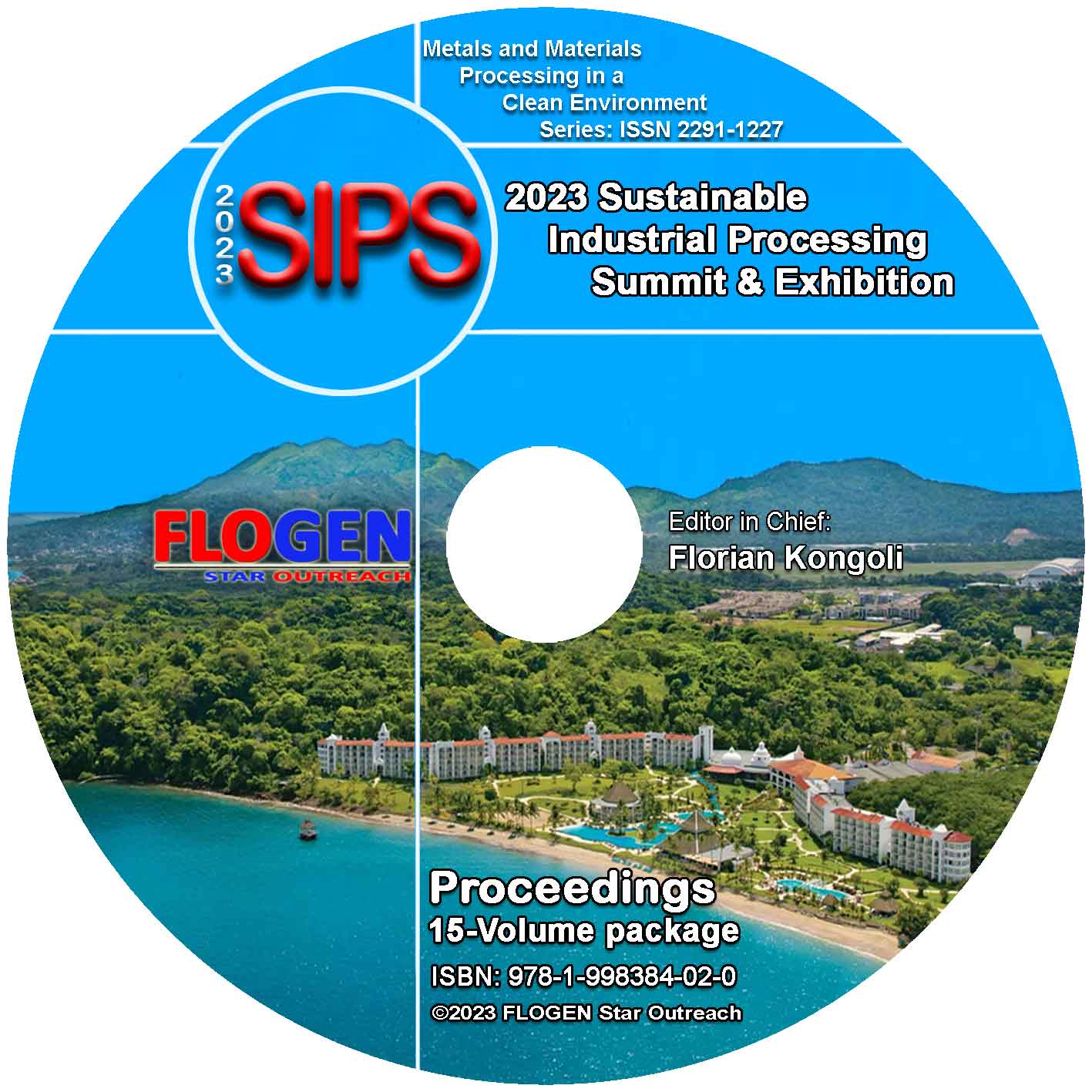2023-Sustainable Industrial Processing Summit
SIPS2023 Volume 12. Intl. Symp on Energy, Carbon, Biochar and Cement
| Editors: | F. Kongoli, S.M. Atnaw, H. Dodds, M. Mauntz, T. Turna, A. Faaij, J. Antrekowitsch, G. Hanke, H.W. Kua, M. Giorcelli |
| Publisher: | Flogen Star OUTREACH |
| Publication Year: | 2023 |
| Pages: | 204 pages |
| ISBN: | 978-1-989820-94-0 (CD) |
| ISSN: | 2291-1227 (Metals and Materials Processing in a Clean Environment Series) |

CD shopping page
TRANSFORMING AGRICULTURAL WASTE INTO SUSTAINABLE BIOCHAR PRODUCTS IN MEXICO: AN INDUSTRY PERSPECTIVE
Luisa Marin de Block1;1GENERAL BIOCHAR SYSTEMS AND INST. LATINOAMERICANO DEL BIOCHAR, Miguel Hidalgo, Mexico;
Type of Paper: Regular
Id Paper: 455
Topic: 9
Abstract:
This case study provides a holistic perspective on the emerging biochar production industry in Mexico, focusing on the industry as a whole rather than individual companies. The study explores the industry's initiatives to harness agricultural waste for sustainable biochar product creation, with shared objectives of boosting local economic development, addressing climate change, and capitalizing on carbon markets.
Leveraging successful experiences in various emerging markets [2], the industry recognized the promise of biochar in supply chain innovation and systems optimization. Mexico, endowed with an ample supply of agricultural waste, emerged as a promising market. However, the challenge remained in familiarizing the market with biochar, an unfamiliar product in this context.
The industry embraced a proactive approach by collaborating with farming organizations and local communities, aiming to garner support and introduce biochar to the Mexican market through consistent communication, education, and practical demonstrations.
The study addresses the economic viability of biochar production in Mexico, driven by secure feedstock sources and anticipated revenue from carbon credits. The timeline for biochar production, its primary application in traditional agriculture, and ongoing experiments for efficiency optimization are presented as common industry practices.
Biochar producers in Mexico are exploring non-agricultural markets [1], such as the construction sector, where biochar can enhance construction materials and reduce carbon emissions. Collaborations with industry associations and research institutions support these initiatives.
The study discusses the projection of carbon credit revenue growth, on the expanding voluntary market and the increasing confidence in testing and data disclosure, which can boost biochar's financial sustainability.
The report concludes with a set of recommendations for aspiring biochar producers, emphasizing the importance of securing feedstock, assessing local market potential, and conducting studies to foster industry growth..
Â
Keywords:
Agriculture; Cement; Industry; Production; Sustainability; Waste; Agricultural Waste; Carbon CreditsReferences:
[1] [1] A. Bates, K. Draper, Burn Using Fire to Cool the Earth (2018) 61-69[2] [2] David Lefebvre1, Samer Fawzy2,3, Camila A. Aquije 4, Biomass residue to carbon dioxide removal: quantifying the global impact of biochar (2023) 5-8